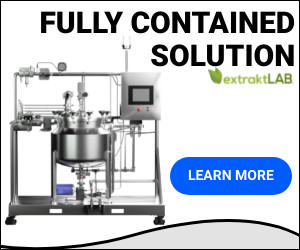People vote with their money in this industry, so it’s time to check the results of CO2 vs. ethanol extraction. Sometimes it’s best to say what’s left unsaid, especially when it means better business results. In the uncharted territory of the hemp extraction industry, where biased opinions on extraction methods are a dime a dozen, transparency is key.
extraktLAB’s panel of PhD chemists, like CEO Dr. Jon Thompson and Director of R&D Dr. Eric Miller, have over 20 years of combined experience in the extraction industry. Over many years of research and development, they’ve tested multiple methods to achieve the best results.
As a business owner himself, Dr. Thompson is particularly focused on the highest quality product with the fastest throughput to achieve the best ROI over the lifetime of the manufacturing line. With those factors in mind, these experts agree that there is one process that leads on all levels, including safety: supercritical CO2 (Schaneman 2018).
CO2 vs Ethanol Extraction
Many recent articles have focused on the starting costs of the CO2 extraction equipment itself; however, the limited facts were a bit misleading without information regarding infrastructure and solvent costs over time. The Achilles heel of ethanol extraction is the ballooning cost of solvent as one scales up. CO2, on the other hand, is cheap, safe, and easy to both move and store.
Simply put: nothing is easy and cheap when it comes to other extraction methods. You get what you pay for, especially over time.
“Other CO2 extractors cannot match our throughput. Our results fall outside the public’s perception and conception of CO2 extraction. Those that do bite, however, discover capabilities unheard of with conventional supercritical machines–and they keep it a secret, as they feel it’s the key to their success. They love their (machines) so much they don’t want anyone else to have them,” said Cole Holstrom, Senior Technical Advisor with extraktLAB.
There’s also little doubt among experts that regulations will tighten up for all US hemp extraction business in the coming years. Among the top concerns is safety. In other countries, such as Canada, volatile extraction methods like butane extraction are not allowed. In addition, Canadian licensed producers have an extra tax (excise tax) placed on the recycling of solvents, like ethanol.
Keep in mind: extraktLAB’s supercritical CO2 extractors operate at the highest level PSI (5,000) in the industry–which means faster throughput for your business. In addition, our CO2 extractors are designed for easy scale up (1 ton per day is a reality). Bottom line, our equipment over time allows you the cost benefits of using CO2 extraction that adds up to greater ROI!
Trade Show Hustle
The entire extraktLAB crew had a great time in Vegas, thanks to everyone who stopped by booth 3431 to check out our scalability options provided by our 1-ton and 10-ton per day facilities! Redundancy in machines, like our stainless steel 2019 Model 140 supercritical CO2 extractors, leads to great control over, and flexibility in, the manufacturing process putting you light years ahead of your competition.
Contact extraktLAB
Still got questions about the differences between ethanol and supercritical CO2 extraction? We’re here to help! Fill out the contact form below or call us at 651-600-0036 to get answers to your questions.
REFERENCES: Schaneman, Bart. “Extraction Smackdown.” Marijuana Business Magazine: October 2018. Website: https://mjbizmagazine.com/extraction-smackdown/


